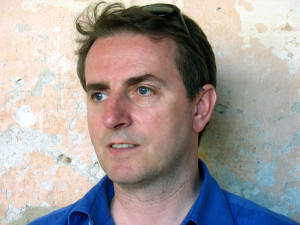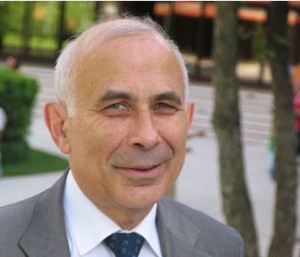Semir Zeki
(University College London, UK)
Michael Burke
(Utrecht University, Netherlands)
Roundtable Respondents
Alexander Bergs (University of Osnabrück), Alberto Biuso (University of Catania), Silvia Bonacchi (University of Warsaw), Lorella Bosco (University of Bari), Thomas Eder (University of Vienna), Anatole Fuksas (University of Cassino), Gaetano Lalomia (University of Catania), Gerhard Lauer (University of Göttingen), Pascal Nicklas (University of Mainz), Massimo Salgaro (University of Verona), Mario Zappia (University of Catania)
Team
Renata Gambino, Grazia Pulvirenti, Simona Di Mari, Salvatore Arcidiacono, Federica Abramo, Mariaelisa Dimino
Contacts
Renata Gambino (renatagambino@gmail.com)
Simona Di Mari (simo_d_86@hotmail.it)

Keynote Speakers
 Michael Burke is professor of rhetoric at the Humanities Faculty of UCR, Utrecht University in Netherlands. His research interests range from rhetoric to neuroscience. He is member of several international projects about pedagogical stylistics, cognitive literary science and rhetorical pedagogy. Chair of the international Poetics and Linguistics Association (PALA) and member of many other research associations. His recent book, Literary Reading Cognition and Emotion: An Exploration of Oceanic Mind (2011) has broken a new path in the linguistic research field.
Michael Burke is professor of rhetoric at the Humanities Faculty of UCR, Utrecht University in Netherlands. His research interests range from rhetoric to neuroscience. He is member of several international projects about pedagogical stylistics, cognitive literary science and rhetorical pedagogy. Chair of the international Poetics and Linguistics Association (PALA) and member of many other research associations. His recent book, Literary Reading Cognition and Emotion: An Exploration of Oceanic Mind (2011) has broken a new path in the linguistic research field.
http://www.ucr.nl/about-ucr/Faculty-and-Staff/Academic-Core/Pages/Prof–Dr–Michael-Burke.aspx
 Semir Zeki is a British neurobiologist who has specialized in studying the primate visual brain and more recently the neural correlates of affective states, such as the experience of love, desire and beauty that are generated by sensory inputs within the field of neuroesthetics. Professor of Neurobiology, since 2008 he is professor of Neuroestetics at UCL, his last three books, A Vision of the Brain (1993), Inner Vision: an exploration of art and the brain (1999); Splendors and Miseries of the Brain (2009) have opened the way to a new trans-disciplinary approach to art fruition and brain functions.
Semir Zeki is a British neurobiologist who has specialized in studying the primate visual brain and more recently the neural correlates of affective states, such as the experience of love, desire and beauty that are generated by sensory inputs within the field of neuroesthetics. Professor of Neurobiology, since 2008 he is professor of Neuroestetics at UCL, his last three books, A Vision of the Brain (1993), Inner Vision: an exploration of art and the brain (1999); Splendors and Miseries of the Brain (2009) have opened the way to a new trans-disciplinary approach to art fruition and brain functions.

